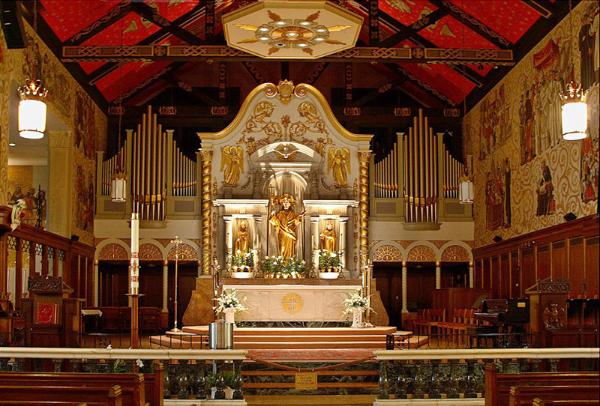Stamp: Hradcany at Prague -UNISSUED stamp - SO 1920 (Eastern Silesia 1920)
Hradcany at Prague -UNISSUED stamp - SO 1920 (Eastern Silesia 1920)
01 January (Eastern Silesia ) within release Czechoslovakia - Hradcany UNISSUED stamps overprinted SO1920 goes into circulation Stamp Hradcany at Prague -UNISSUED stamp - SO 1920 face value 5 Czechoslovak haléř
| Stamp Hradcany at Prague -UNISSUED stamp - SO 1920 in catalogues | |
|---|---|
| POFIS: | POF: CS-SO (3)Na |
Stamp is horizontal format.
UNISSUED STAMP! Blue overprint S O 1920 on stamp POFIS: CS 3Also in the issue Czechoslovakia - Hradcany UNISSUED stamps overprinted SO1920:
- Stamp - Hradcany at Prague -UNISSUED stamp - SO 1920 face value 5;
- Stamp - Hradcany at Prague -UNISSUED stamp - SO 1920 face value 25;
- Stamp - Hradcany at Prague -UNISSUED stamp - SO 1920 face value 30;
- Stamp - Hradcany at Prague -UNISSUED stamp - SO 1920 face value 30;
- Stamp - Hradcany at Prague -UNISSUED stamp - SO 1920 face value 5;
- Stamp - Hradcany at Prague -UNISSUED stamp - SO 1920 face value 25;
- Stamp - Hradcany at Prague -UNISSUED stamp - SO 1920 face value 25;
- Stamp - Hradcany at Prague -UNISSUED stamp - SO 1920 face value 30;
- Stamp - Hradcany at Prague -UNISSUED stamp - SO 1920 face value 25;
- Stamp - Hradcany at Prague -UNISSUED stamp - SO 1920 face value 10;
- Stamp - Hradcany at Prague -UNISSUED stamp - SO 1920 face value 25;
- Stamp - Hradcany at Prague -UNISSUED stamp - SO 1920 face value 25;
- Stamp - Hradcany at Prague -UNISSUED stamp - SO 1920 face value 25;
- Stamp - Hradcany at Prague -UNISSUED stamp - SO 1920 face value 30;
- Stamp - Hradcany at Prague -UNISSUED stamp - SO 1920 face value 30;
- Stamp - Hradcany at Prague -UNISSUED stamp - SO 1920 face value 10;
- Stamp - Hradcany at Prague -UNISSUED stamp - SO 1920 face value 25;
- Stamp - Hradcany at Prague -UNISSUED stamp - SO 1920 face value 25;
- Stamp - Hradcany at Prague -UNISSUED stamp - SO 1920 face value 5;
- Stamp - Hradcany at Prague -UNISSUED stamp - SO 1920 face value 25;
- Stamp - Hradcany at Prague -UNISSUED stamp - SO 1920 face value 25;
- Stamp - Hradcany at Prague -UNISSUED stamp - SO 1920 face value 5;
- Stamp - Hradcany at Prague -UNISSUED stamp - SO 1920 face value 30;
- Stamp - Hradcany at Prague -UNISSUED stamp - SO 1920 face value 30;
- Stamp - Hradcany at Prague -UNISSUED stamp - SO 1920 face value 5;
- Stamp - Hradcany at Prague -UNISSUED stamp - SO 1920 face value 5;
- Stamp - Hradcany at Prague -UNISSUED stamp - SO 1920 face value 25;
- Stamp - Hradcany at Prague -UNISSUED- Upside-down overprint SO 1920 face value 10;
- Stamp - Hradcany at Prague -UNISSUED- Upside-down overprint SO 1920 face value 25;
- Stamp - Hradcany at Prague -UNISSUED- Upside-down overprint SO 1920 face value 30;
- Stamp - Hradcany at Prague -UNISSUED- Upside-down overprint SO 1920 face value 30;
- Stamp - Hradcany at Prague -UNISSUED- Upside-down overprint SO 1920 face value 5;
- Stamp - Hradcany at Prague -UNISSUED- Upside-down overprint SO 1920 face value 5;
- Stamp - Hradcany at Prague -UNISSUED- Upside-down overprint SO 1920 face value 120;
Stamp Hradcany at Prague -UNISSUED stamp - SO 1920 it reflects the thematic directions:
A castle (from Latin: castellum) is a type of fortified structure built in Europe and the Middle East during the Middle Ages by European nobility. Scholars debate the scope of the word castle, but usually consider it to be the private fortified residence of a lord or noble. This is distinct from a palace, which is not fortified; from a fortress, which was not always a residence for nobility; and from a fortified settlement, which was a public defence – though there are many similarities among these types of construction. Usage of the term has varied over time and has been applied to structures as diverse as hill forts and country houses. Over the approximately 900 years that castles were built, they took on a great many forms with many different features, although some, such as curtain walls and arrowslits, were commonplace.
A church building, often simply called a church, is a building used for Christian religious activities, particularly worship services. The term in its architectural sense is most often used by Christians to refer to their religious buildings, but it is sometimes used (by analogy) for buildings of other religions. In traditional Christian architecture, the church is often arranged in the shape of a Christian cross. When viewed from plan view the longest part of a cross is represented by the aisle and the junction of the cross is located at the altar area. Towers or domes are often added with the intention of directing the eye of the viewer towards the heavens and inspiring church visitors. Modern church buildings have a variety of architectural styles and layouts; many buildings that were designed for other purposes have now been converted for church use; and, similarly, many original church buildings have been put to other uses. The earliest identified Christian church was a house church founded between 233 and 256. During the 11th through 14th centuries, a wave of building of cathedrals and smaller parish churches occurred across Western Europe. A cathedral is a church, usually Roman Catholic, Anglican, Oriental Orthodox or Eastern Orthodox, housing the seat of a bishop.


